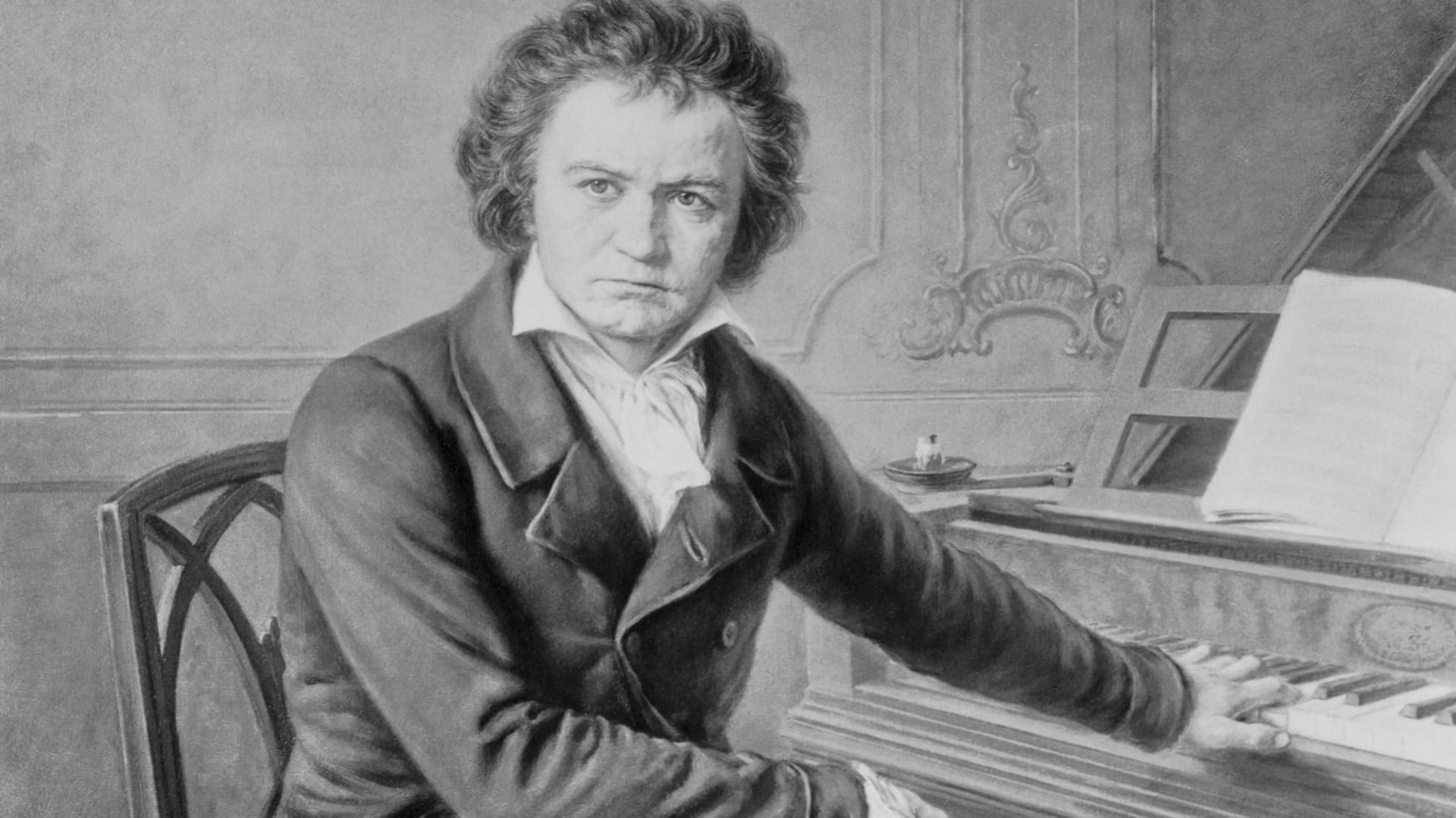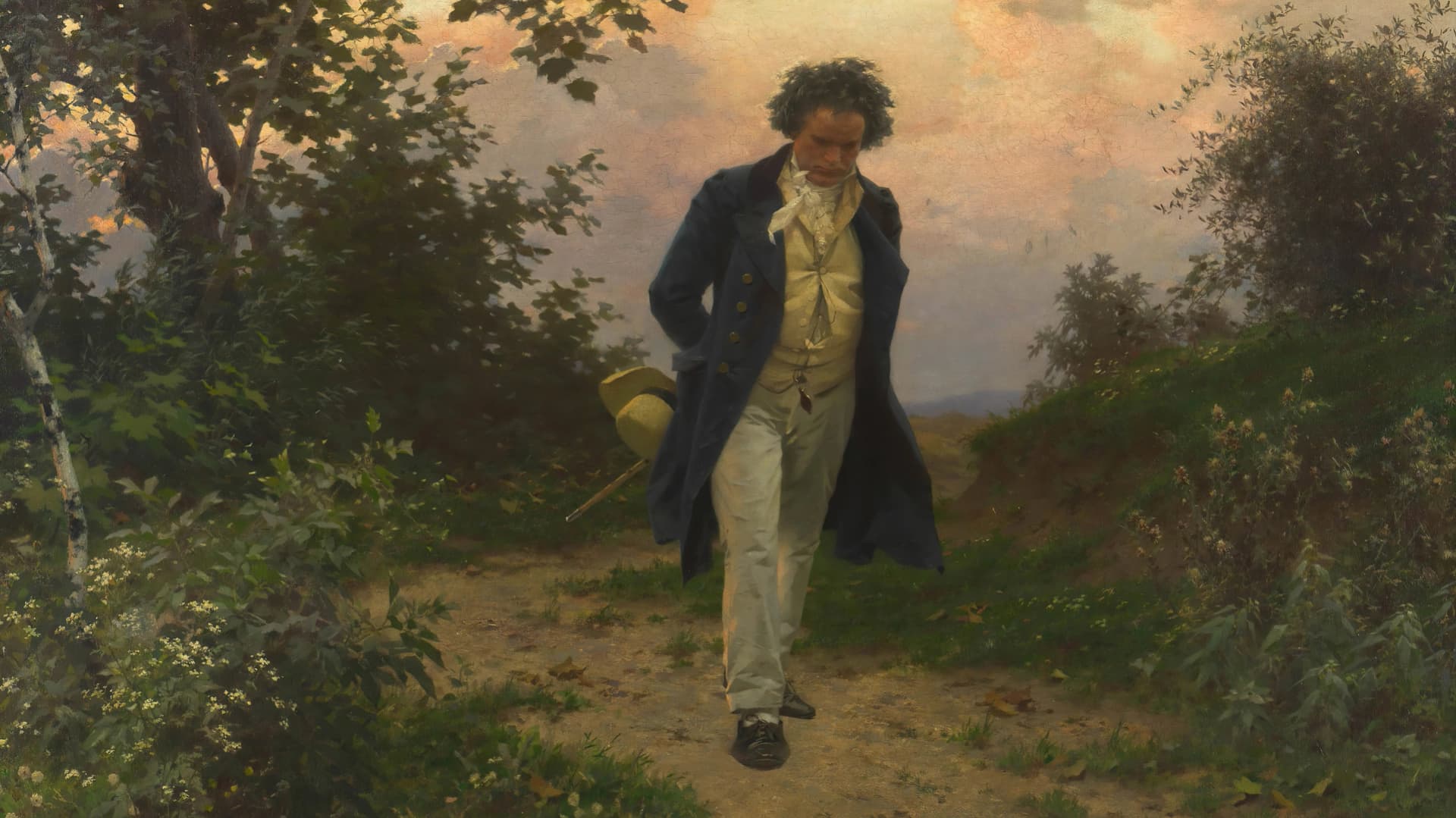
articles / Saturday Morning Car Tunes
Saturday Morning Car Tunes: Ludwig van Beethoven, Pt. II
Bettmann/Getty Images

Heritage Images/Getty Images
Listen to the episode!
Dun dun dun DUNN! This week, Beethoven's middle period takes center stage, where he truly starts sounding like, well, Beethoven. Heroes, symphonies, and most of the orchestral music are spotlighted.
Howdy, howdy, howdy! I’m Solomon Reynolds, and this is: Saturday Morning Car Tunes! This morning… When Beethoven realized he was going deaf, he didn’t give up on his art, because he still had things to say—which he said through the symphony. When Beethoven wrote his Symphony No. 3, music became more than just entertainment. It carried ideas and ideals. Titled Eroica, or "heroic," it was first named after Napoleon, the young revolutionary hero of France. But when Napoleon crowned himself Emperor, Beethoven got so angry that he tore the title page in half. The hero he admired had become a tyrant.
Even after the Eroica, Beethoven kept writing music that sounded symphonic and heroic—like his Waldstein Sonata. Or the Razumovsky string quartets. Doesn’t Beethoven make four instruments sound like a whole orchestra?
What Beethoven started in his Third Symphony, he continued in his Fifth. His symphonies were like adventures, full of obstacles to overcome. The C minor opening, or “fate knocking at the door,” arrives at a triumphant C major finale, as if Beethoven’s saying that no matter how hard it is, some day we shall overcome.
Beethoven’s symphonic Piano Concerto No. 5 is nicknamed the Emperor, but not after Napoleon. The French conqueror invaded Vienna twice, where Beethoven was living, which really upset him. Although he was going deaf, the bombs were so loud that he covered his head with pillows.
Beethoven wrote his Serious Quartet after Napoleon’s second invasion. Can you hear his frustration?
But then the tide turned for Napoleon, and he began losing battles. Beethoven wrote Wellington’s Victory to celebrate Napoleon’s downfall. The companion piece to Wellington’s Victory was Beethoven’s Seventh Symphony. Unlike the Eroica, which praised Napoleon, the Seventh feels like a farewell to tyranny.
Beethoven’s symphonies weren’t just music. They were his struggles, his losses, and his triumphs. Maybe that’s why people still love Beethoven’s music today—because his triumphs become yours, too.
I’m Solomon Reynolds. I write and produce Saturday Morning Car Tunes, with research assistant Carolina Correa and audio engineer Stephen Page, only on Classical California. Tune in—or out of your car—next Saturday morning!





